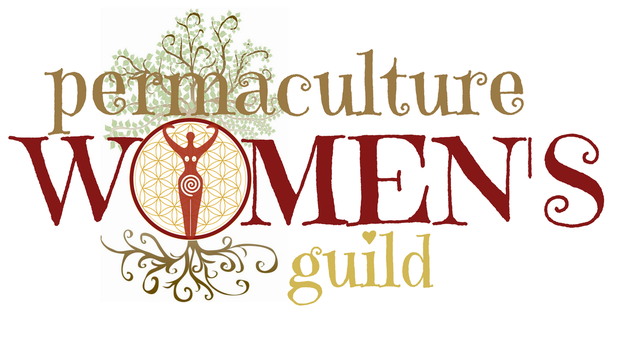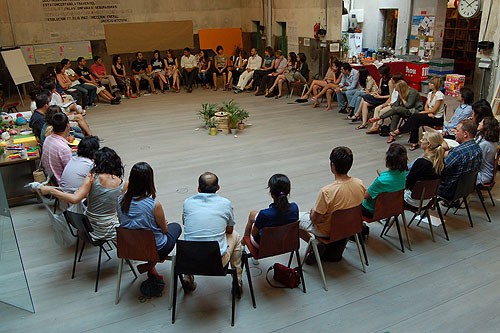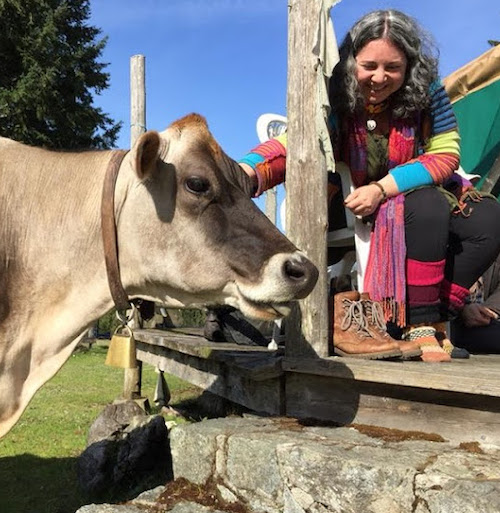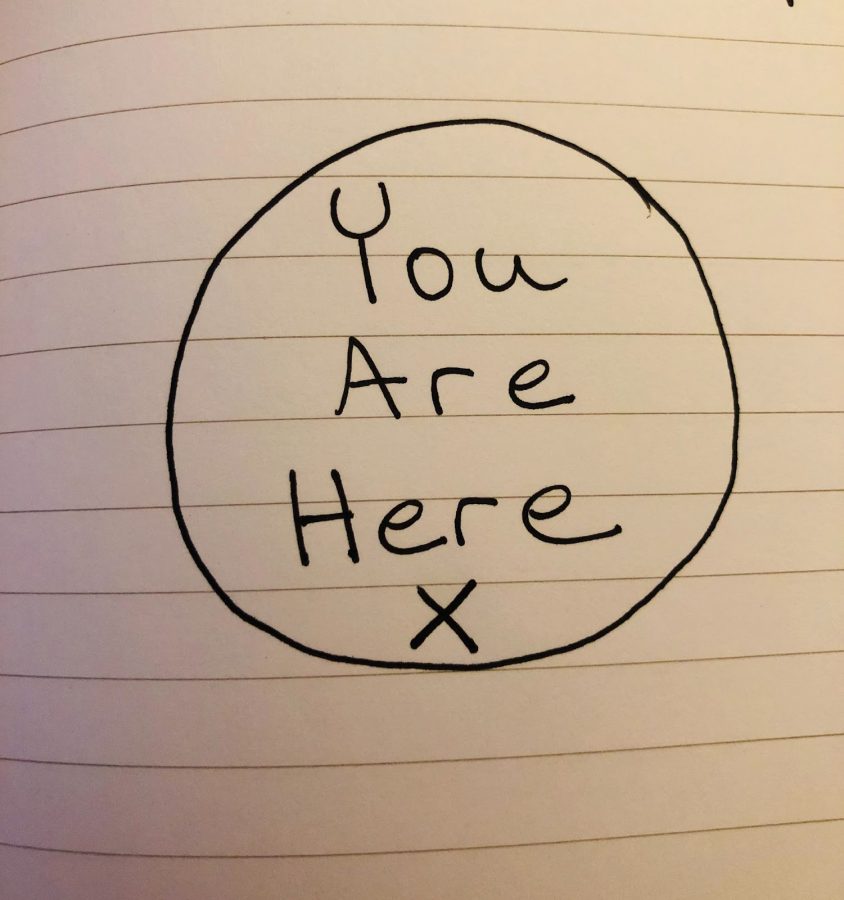What does it mean to host yourself and others in these deep times? And how does that connect with permaculture?What is the Art of Hosting?

Here’s my story and how I connected the dots between where my food comes from, my passion for growing stuff and creating beauty to the issues of social justice, climate change, intersectionality and our involvement with the world.
A few years ago, I “woke up” to the realities of the world: it felt as if I had lived in a sort of “bubble”, or in a partially zombie-sleeping state for many years…where did all time go? How could I have been so blind? I found myself in my 40’s, isolated, depressed, oppressed by a lifestyle that had betrayed almost every value I ever had, disempowered and in deep debt in a foreign country and culture, with no roots and no future…
The thing is, I was living a life like many of us do: following a sort of “script” I didn’t get to write or even review; being reactive to things that “happened to me” and deeply buried into myself and the small world of my life: family, friends, work, school, mortgage and so on…
I was supposed to be happy and proud of my achievements: I was a well known, respected career coach, I wrote for professional magazines and presented in conferences. I was a world ahead from my humble upbringing in Argentina by a single mother/social activist and having been myself a refugee. I never got to high school and went to university with huge sacrifices when I was well into my 30’s.
I went from getting water from a well to getting water-rationing to my now middle-class home with drinking water in the toilet flush! How can I not feel safe, fulfilled and happy?
Incredibly, I was all the time honestly believing I was aware and awake and doing my best: we just don’t know what we don’t know!
Fast forward and it comes my journey through anger, grief, guilt and despair when discovered my role in climate change, resource depletion, biodiversity loss, social injustices and colonization.
And then, permaculture, the WTR and all the rest that has changed my life forever.
When I discovered permaculture, I thought I had found “the answer”: here there was a living philosophy and design system based in ethics I could embrace that would allow me and my community to assess and address challenges at almost all thinkable levels: from food to waste, from livelihood to community governance, from energy to housing and so on…permaculture would provide the lenses and tools for me to re-design my life in a more ethical, regenerative and spiritual fulfilling way and there was nothing I wanted more than to share this with others, so all could benefit.
Until reality started to clash with my dreams: I needed to keep a job that was nowhere connected to my permaculture vision, I also needed to stay as part of a family life and dynamics that were not reflecting all my new learnings…my attempts to reach out to community clashed with people’s egos, hidden agendas and limited views from privileged people who were nowhere close to understand how their privilege hurt and keep others away from this important tool. I ended up burning out, which in my life, that shows up as health imbalances, both at the emotional and physical levels and I withdrew from most projects and groups.
But I rarely give up!
In my explorations and try outs, I found that while we may have all the tools & knowledge (technology, skills, etc.) to build a regenerative future within our households and communities, we seem to be lacking in a much important and decisive area: how we show up, how we treat and host each other, how we participate, make decisions and work together…
While permaculture has a “Care for People” ethics, not many in the permaculture world were actually living this ethic: I saw abuse, oppression and privilege being rampant on not only how PDCs were being offered, but also in how projects, designs and ideas were managed and spread: who was included and who was left out and how permaculture was becoming yet another barrier to separate and discriminate us.
This pervasive colonization of permaculture was not only done to the people, but to the land and the ecosystems and communities in whose environment these projects were implemented.
Where was all this coming from?
I found it came from old stories, pervasive stories still running deep in our minds and souls: stories of separation and hierarchy that gave us the delusion and arrogance of control and power-over. These stories had created structures and systems, so powerful and invasive that they were not only in our institutions and dynamics but also in our minds: we were breathing and living them in ourselves!
And then I discovered the Art of Hosting: a worldview and toolkit of ancient and new, evolving methods and strategies to help us understand ourselves as part of systems and truly reach out, include and involve others so all those who need to be present are being heard.
The Art of Hosting promotes self awareness and awareness of our surroundings and those who are with us in a group, community or any other type of relationship and dynamics. It encourages “self-hosting” as well as the curiosity and opening to learn how to host others: the land, the ancestors, the participants in a project or meeting, the future generations.
The AoH is not a “one-size-fits-all” approach: it is a humble, yet curious and ever stretching series of tools and practices that answers to the need to create a new story, a story based on the understanding of living systems and the acknowledgement that human systems are organic, messy, chaotic and emerging as living systems are.
With time, I also explored the Art of Mentoring, the Work that Reconnects (where I currently work as both facilitator and network coordinator), cultural emergence, ecopsychology (which I use in my life and career coaching practices) and much more: my life was transformed through permaculture and all its ramifications…
In the upcoming first ever Online Women-led Permaculture Design Certificate, you will not only learn about the basics of permaculture design (which include design of food, energy, water and other key systems), you will also learn about how to create a right livelihood (or ethical economics) , how to explore and re-design social and inner landscapes and much more! My module, while centering in the main principles and practices of the Art of Hosting, will also help you to put together all the pieces of the puzzle: how we can use permaculture in real inclusive, non-oppressive, decolonizing ways.
The program starts April 1 and is open to everyone who wants to learn practical ways to create a better future for themselves and their communities: we invite women, men, the LGBTQ community, those with visible and/or invisible challenges.
More than anything, this OWPDC is an offer to those who may not be able to afford a trip to a permaculture course, or take 2–3 weeks from their busy lives, families and jobs.
In the weeks from now and April 1, when the course opens, I will be posting about the areas of my expertise and passion within permaculture: the art of hosting is just one of them, but other areas include: how to create your right livelihood so your work and contribution are ethical and regenerative as opposed to draining, unethical and destructive; how to assess your life, household and community so you create true resilience and how to create food sovereignty for you and your loved ones.
Join me and 40 other amazing teachers from around the world in this incredible adventure: if not us, who? If not now, when?
We are the ones we have been waiting for…
Womens Online Permaculture Design Certificate Course enrollment is open. Some partial scholarships and study arrangements available, contact me for more information.




